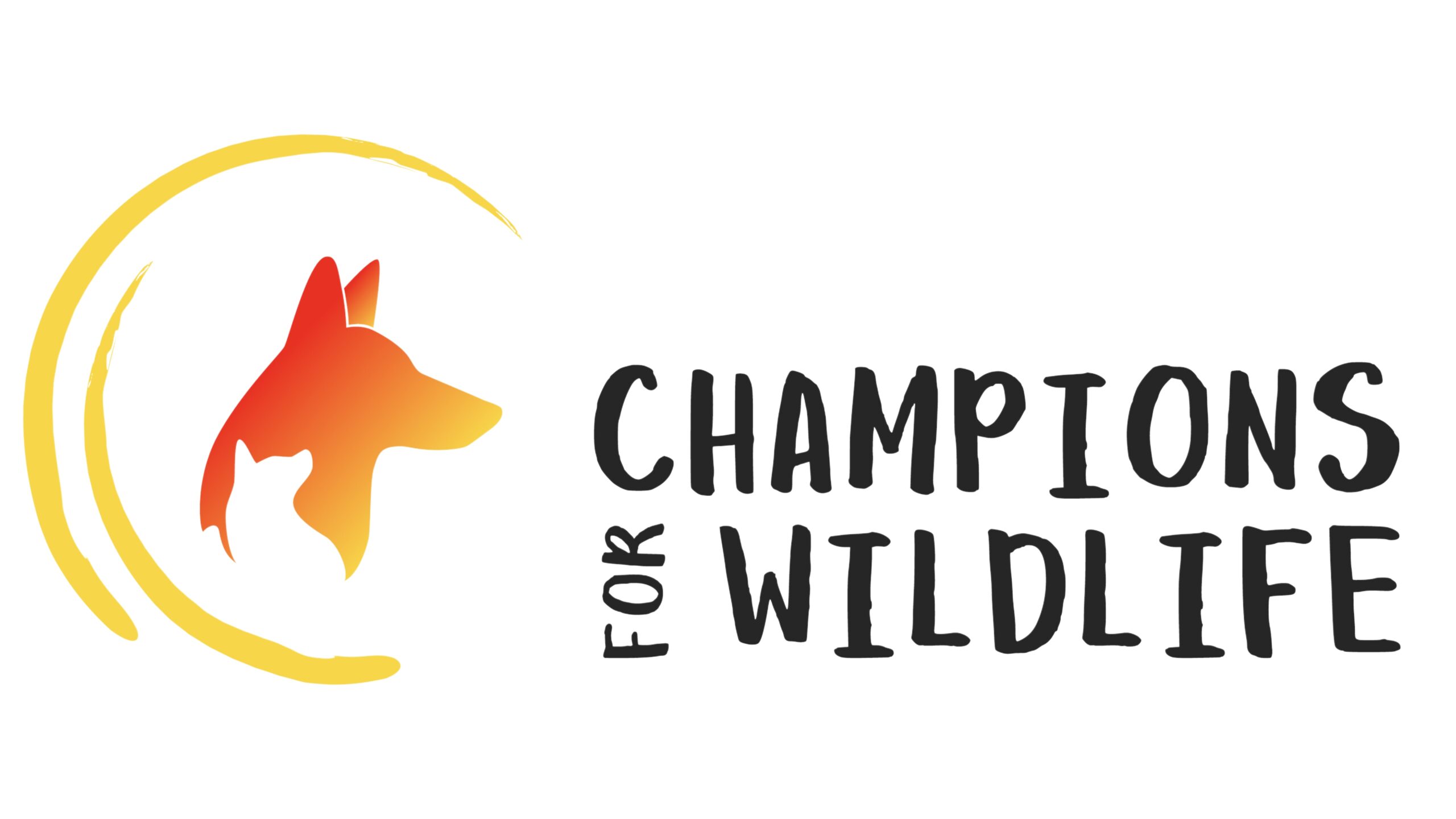Educational Programs: The More You Learn, the More You Love
Educational Programs: The More You Learn, the More You Love
Education programs for wildlife are magical. But what does that mean?
First, close your eyes. Next, listen to the video. Ok, it is a little tricky to close your eyes and click on the video but give it a try.
Now picture a group of children sitting in a circle listening to the howl of red wolves. When asked how they feel, some are afraid, most are happy and some feel like they are sitting next to the wolves. This is how we start every class, even adult classes, on red wolves.
And why red wolves? Because they are the most endangered wild animal in the US. A great place to start! And thanks to the Wolf Conservation Center for the fantastic video!
With less than 20 left in the wild, in the whole world, we want to teach our next generation why they (and we) should save them just like our country did for the bald eagle. To learn a bit more about these magnificent animals that mate for life and are fabulous parents, read our blog Seven Impressive Reasons We Love Endangered Red Wolves.
A Children’s Film For the Love of Red Wolves
Art Education Paired with Wildlife
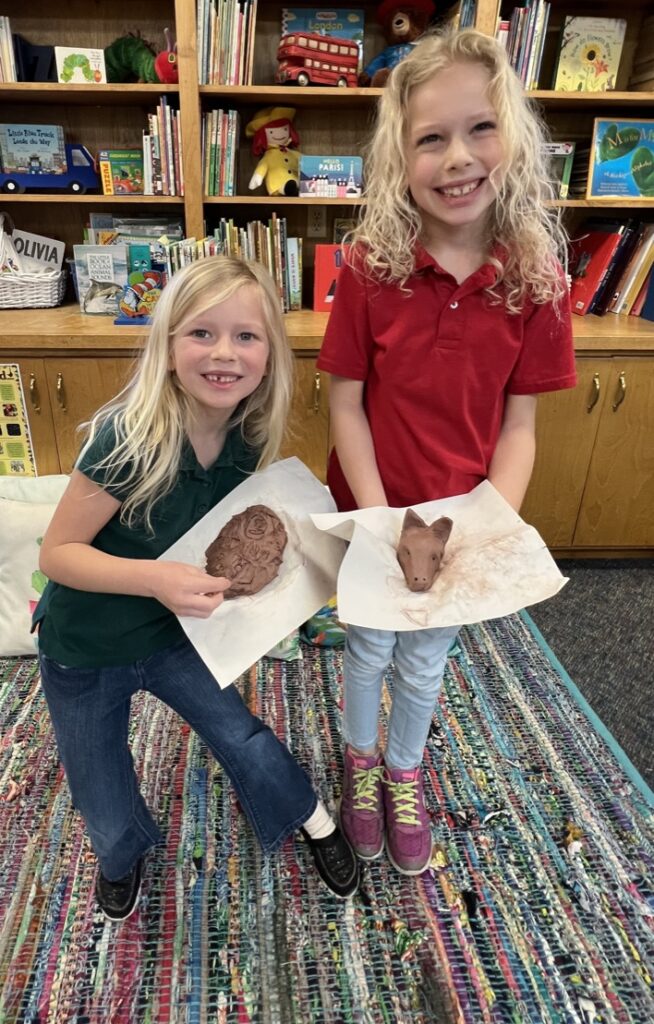
Two students with their red wolf sculptures
Using art educational programs to teach kids about wildlife is a winning combination. The kids learn about an animal or habitat and then get to do an art project to reinforce the learning! Just look at these kids!
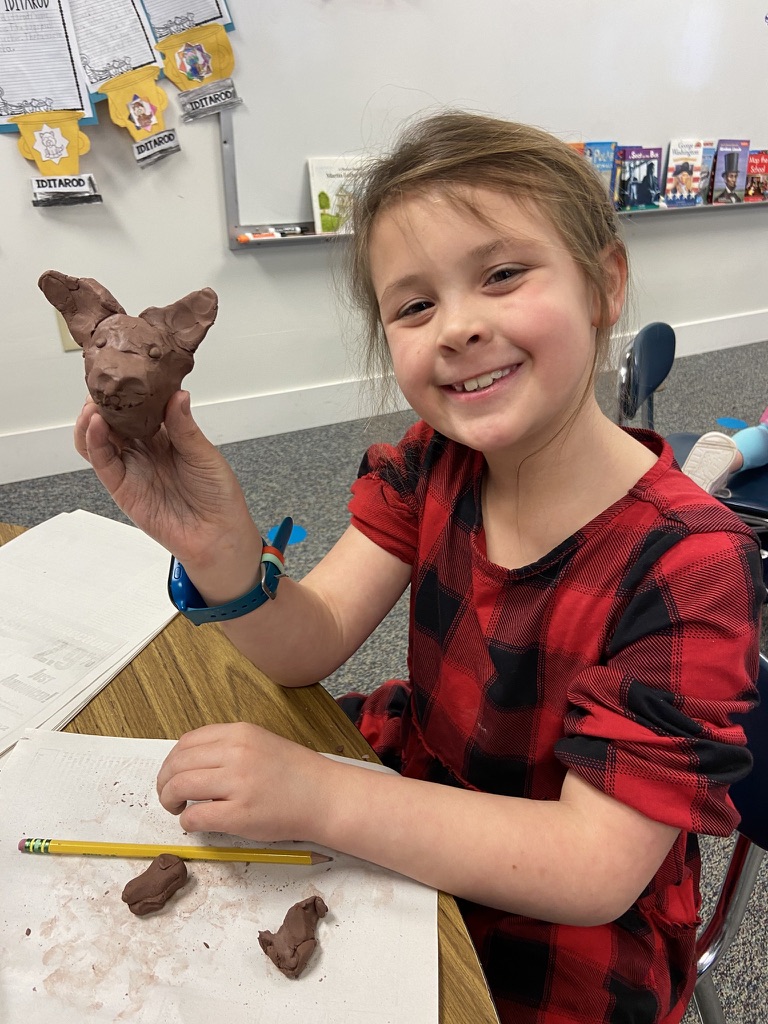
A first grader holds up her red wolf sculpture
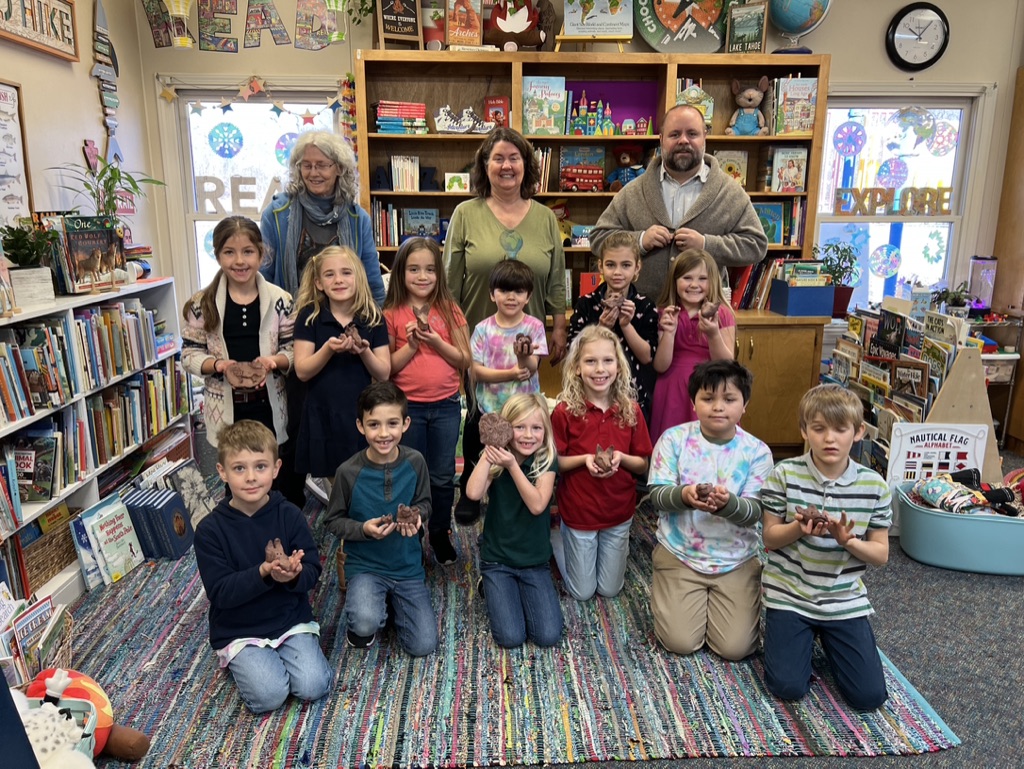
A first-grade class after they finished their sculpting.
Using Art Education for Habitat
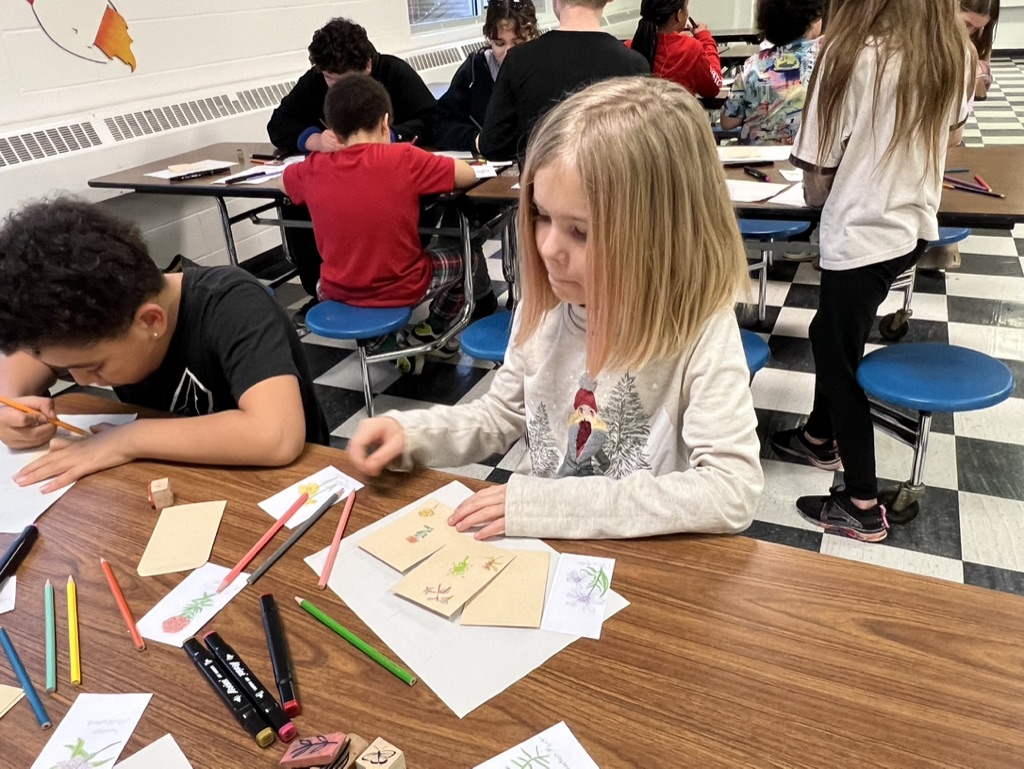
A student decorates native seed packets in our After School Program.
What better way to start is with a lesson on how plants, especially native plants, are critical to the survival of all wildlife? We teach the kids that baby birds eat catepillars for the first few weeks of their lives. And caterpillars only eat native plants most of the time. So no native plants, no baby birds.
Polk County Schools asked us to start an After School Program for our four elementary and one middle schools. For our very first program, we partnered with the Gardening for Life Project, which is bringing Doug Tallamy to speak in Tryon on March 4 2023.
To quote their website, Doug says, “we are losing healthy biodiverse habitats and we can begin to reverse that by taking simple steps right in our own yards”. We say, what better way than to plant native seeds?
Each student decorates several seed packets, which will be handed out for free at the Tallamy event. Then they get to take home a packet to plant in their own gardens.
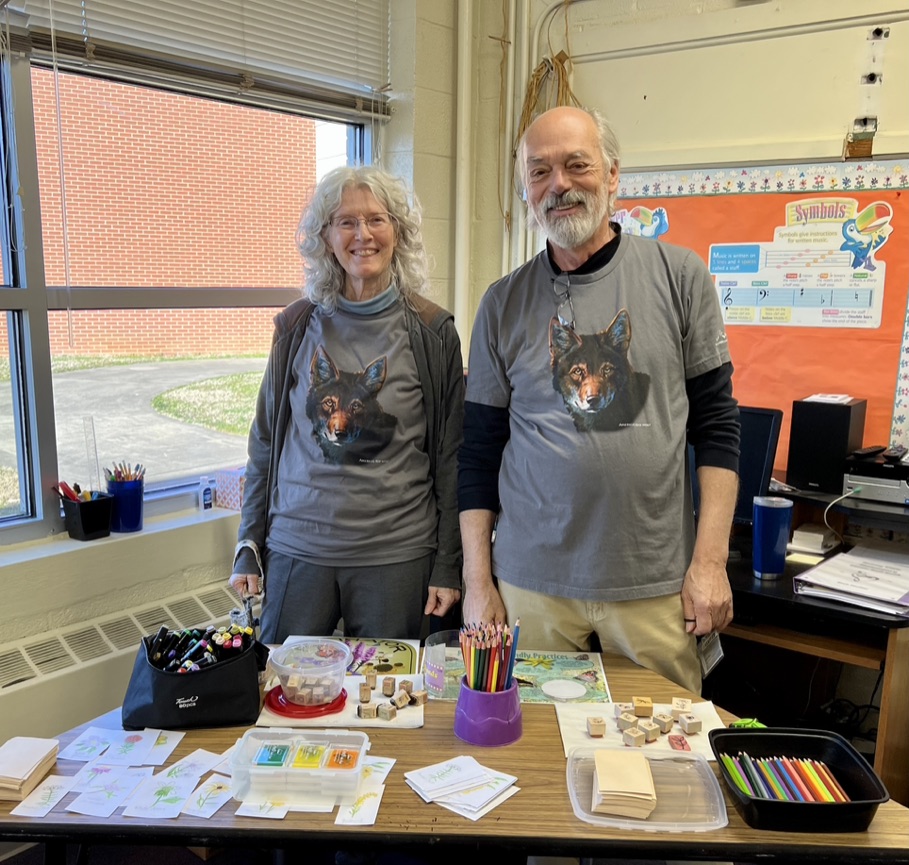
Karen Dacey & David Riddle get ready to help students decorate native plant seeds in our After School Program
And We Teach About Other Underdogs Too!
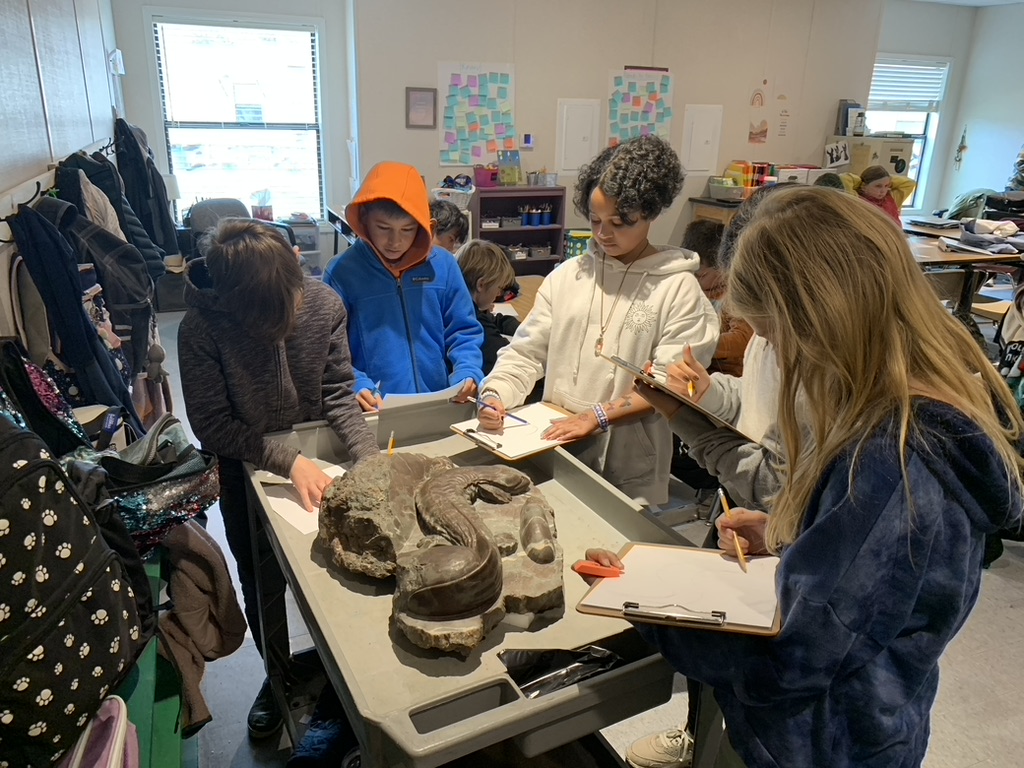
Fifth graders learn about hellbenders and hellgrammites
Dale has just finished his hellbender sculpture so we bring it along. The kids love touching and studying it as they work on their art projects. Today they are designing t-shirts for a competition to raise money for stream restoration. The winning design? See below.
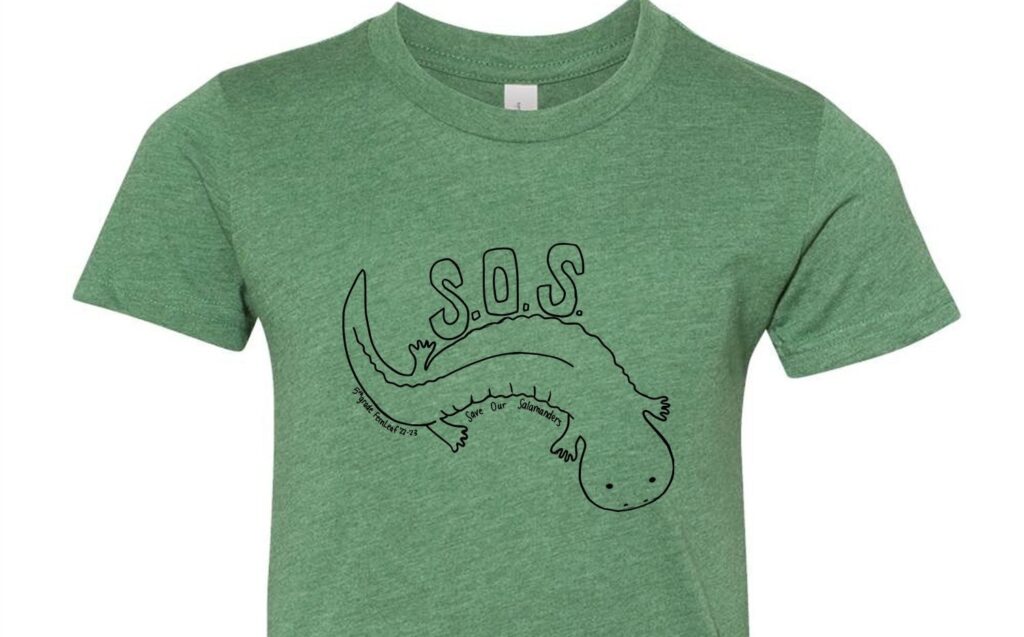
The winning t-shirt for hellbender conservation
If you’d like us to teach a class for you…
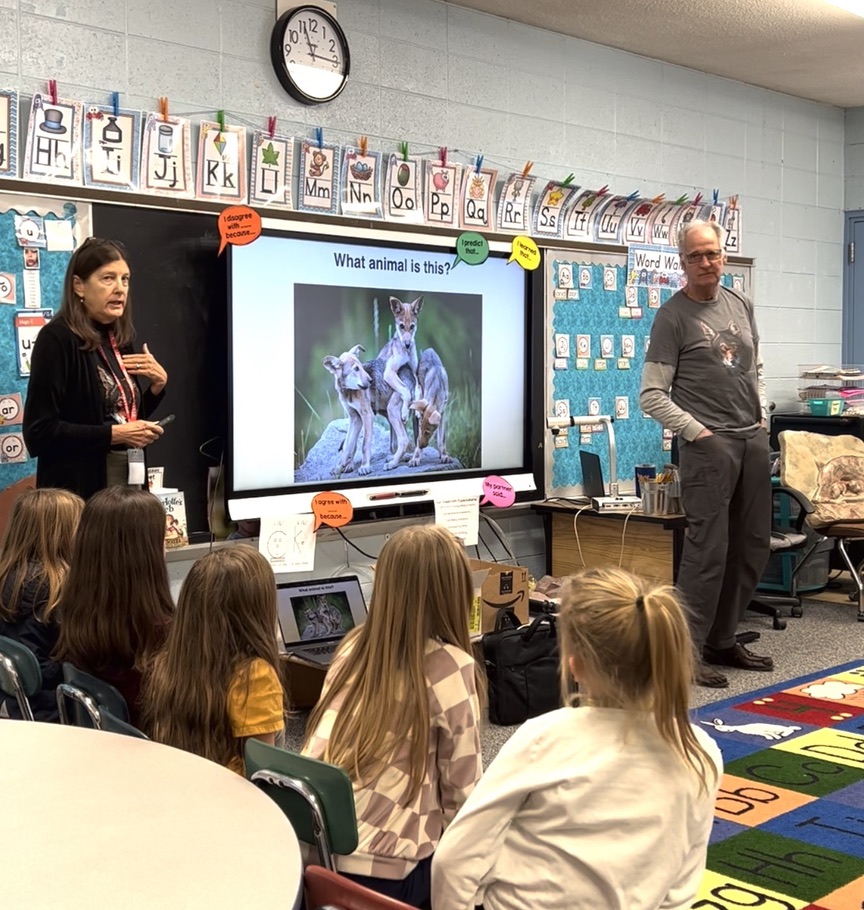
First graders learn about red wolves
Educational programs for children are one of our most important initiatives. We are working with several local school systems and scout troops to develop curricula for endangered animals and how they positively impact our environment.
So calling all teachers. Let us know if you would like to get involved with helping us develop interactive lesson plans for grades K-12. Or if you’d like to get on our waiting list for a class. We would love to hear from you at [email protected]!
We Need Your Support!
A $100 donation buys art supplies for 40 children and each wildlife lesson includes art education. Just hit the donate button at the top of the page. To volunteer, complete our Volunteer Form.
See what one child wrote after our class. It just doesn’t get much better!
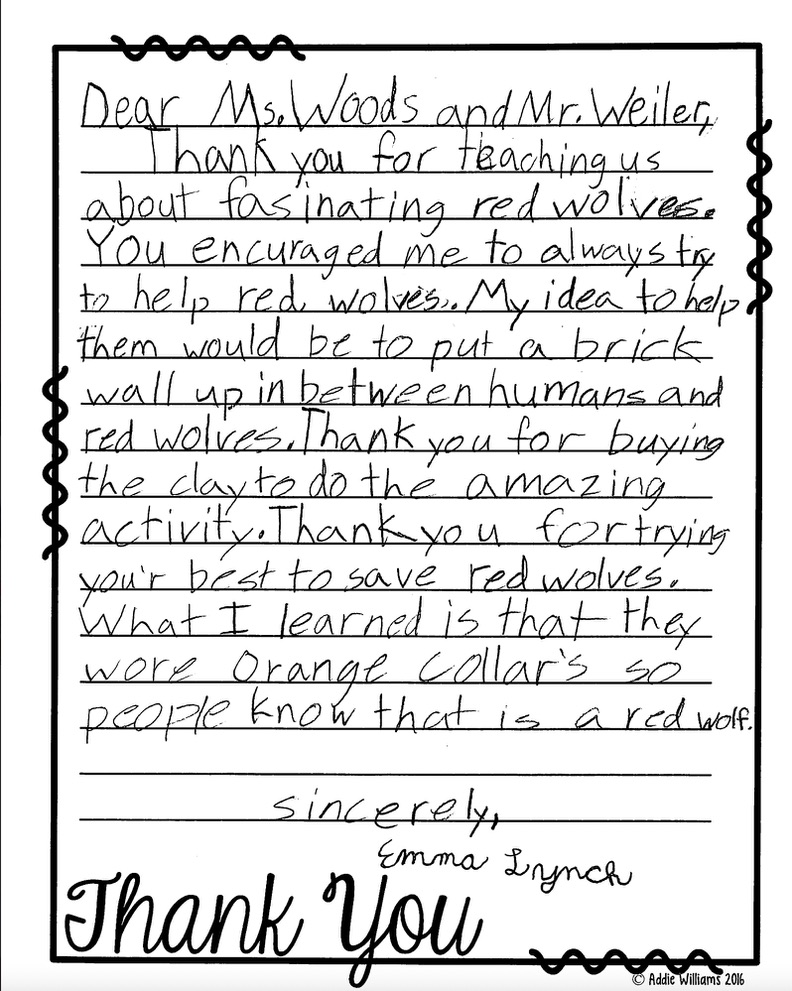
A thank you letter from a third grader
